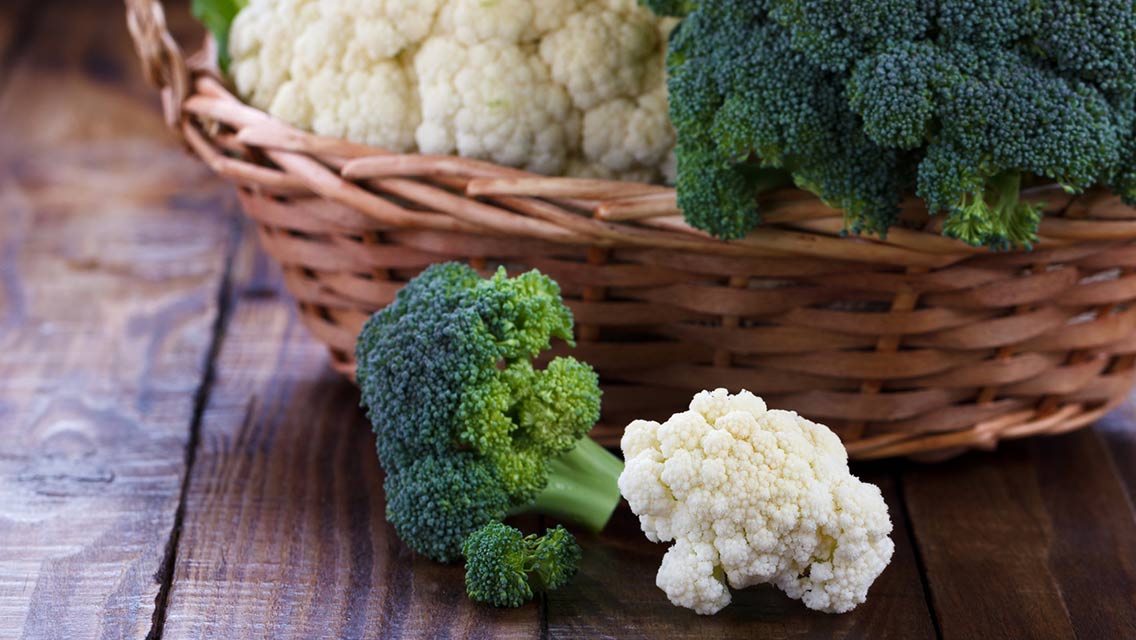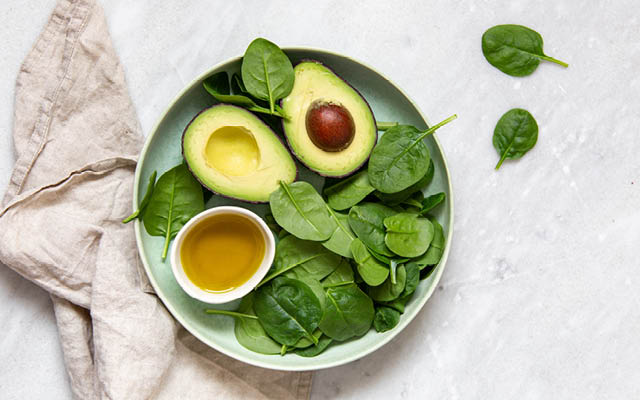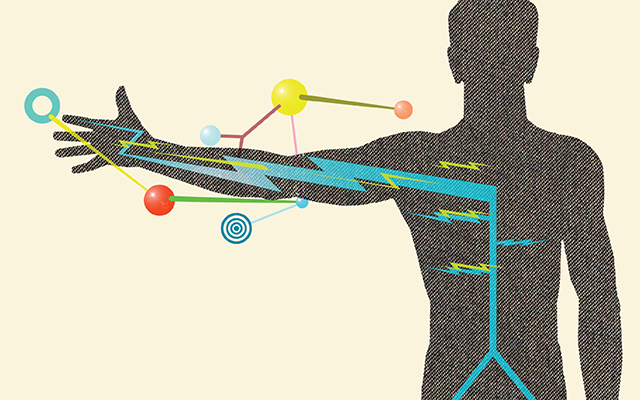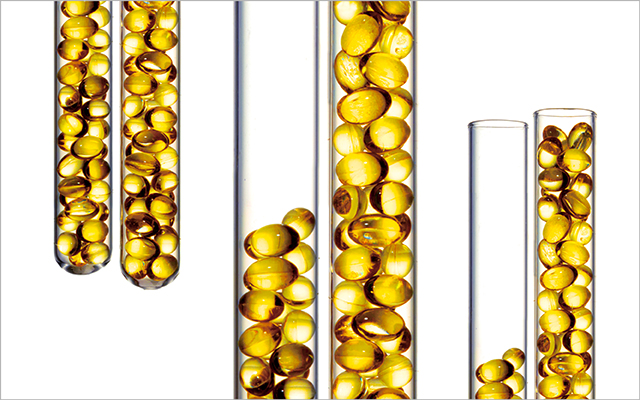How important is CoQ10?
Required by every single cell in our bodies, the molecule CoQ10 is basically a spark plug that is pivotal for the chemical reactions that produce ATP, the main form of cellular energy.
“Without CoQ10, there is no spark and therefore no production of energy for the cell. And, without energy, there is no life,” explains Michael B. Schachter, MD.
Two weeks after delivering a baby by cesarean section, Joan Jackson was rushed to a hospital suffering from shortness of breath. The cause was postpartum cardiomyopathy, a form of heart failure. A cardiology team treated her with conventional therapies and sent her on her way. But two years later, the young mother came back, this time with the added symptoms of fatigue, swollen ankles and poor appetite — signs of heart failure, yet again.
Other doctors said her best hope now was a heart transplant, but cardiologist Stephen Sinatra, MD, saw another way. Thanks to groundbreaking research by molecular biologists Karl Folkers, PhD, of the University of Texas, and Gian Paolo Littarru, MD, of the University of Ancona Medical School in Italy, he knew that heart-failure patients consistently suffered a shortage of a molecule known as coenzyme Q10.
While Jackson awaited her heart transplant, Sinatra put her on 10 milligrams of the molecule coenzyme Q10 — or, as it’s more commonly referred to, CoQ10 — three times a day. When she experienced no negative side effects, he tripled the dose and added a multivitamin as well.
To be sure, Jackson’s health was rocky — she still occasionally experienced arrhythmia, shortness of breath, asthma and arthritis. But the regimen of CoQ10 eliminated the diagnosis of heart failure and the transplant was tabled for good.
Sinatra calls Jackson a poster child for the power of nutritional medicine, but he notes that she’s not an altogether unusual case.
“Almost every case of heart failure I have seen since [then] has improved to at least some degree with this approach,” says Sinatra, a clinical cardiologist at Manchester Memorial Hospital in Connecticut and author of The Sinatra Solution: Metabolic Cardiology. Today he ramps up the doses of CoQ10 and other vitamins and nutrients even higher, with better results.
CoQ10 has gained a lot of attention in recent years as a way to slow cardiovascular aging and treat heart disease. But there is a burgeoning body of research that suggests therapeutic roles for CoQ10 across a range of other illnesses: Parkinson’s disease, Huntington’s disease, Friedreich’s ataxia and other neurodegenerative disorders, eye conditions, diabetes, and even cancer.
Such treatments are still experimental, but emerging research increasingly suggests an essential role for the molecule in sustaining the health we already have.
A raft of recent studies suggests CoQ10 may be vital for maintaining muscle strength, boosting energy and sharpening cognition. It’s even been shown to help prevent migraines and protect against sun damage and wrinkles. For practitioners at the frontlines of integrative medicine, supplementing with CoQ10 is increasingly a linchpin of wellness for middle-age and older patients.
Consumers have caught on as well. According to a 2010 survey from Consumerlab.com that sampled people who use more than one supplement, CoQ10 has become the third-most popular supplement of choice, following omega-3 fatty acids and ordinary multivitamins.
What Does CoQ10 Do?
Why would one molecule prove to be so important over such a range of health issues — and a protective factor in healthy aging itself? The reason lies in CoQ10’s basic biochemistry and its global role in lifelong health.
CoQ10 was first discovered in 1957 by University of Wisconsin scientists studying mitochondria (the tiny energy factories found in every cell) in the hearts of cows. One of the researchers noticed that when mitochondrial lipid was placed in a test tube, it produced unusual yellow crystals. Before long, scientists at Merck had determined that the crystals were composed of molecules known as quinones — a family of ringed organic compounds involved in generating energy through respiration. So ubiquitous were these molecules across the entire oxygen-metabolizing world that scientists dubbed them ubiquinones.
All ubiquinones have a tail made of repeating chemical units; the number of units varies from one species to the next. Since all human ubiquinones have tails with 10 repeating elements, the Merck researchers dubbed the human form of the molecule coenzyme Q10. Subsequently, researchers determined that CoQ10 functions in three critical ways:
CoQ10 is essential for generating the energy that keeps us alive.
The body burns fats and carbohydrates in the presence of oxygen, ultimately releasing carbon dioxide and water to the external world and retaining, for its cells, a fundamental unit of organic fuel known as adenosine triphosphate, or ATP.
ATP is the only form of energy the cells can actually use directly. To churn out ATP, mitochondria have to break down fats and carbohydrates in a complex series of steps, each one requiring the transfer of electrons. CoQ10, which is fat soluble and able to move easily through the cell’s lipid membranes, is the faithful, speedy messenger ferrying those electrons from one part of the intricate process to the next.
“If you think of the cell as a little engine, which uses oxygen to burn the organic fuels that come from foodstuffs, you may think of CoQ10 as the part of the engine that provides the spark for this process,” explains Michael B. Schachter, MD, director of the Schachter Center for Complementary Medicine in Suffern, N.Y. “No other substance will substitute for CoQ10. Without CoQ10, there is no spark and therefore no production of energy for the cell. And, without energy, there is no life.” (Indeed, CoQ10’s role in churning energy explains why the fitness community has embraced the supplement, shown in some studies to boost performance and in many others to reduce levels of fatigue.)
CoQ10 functions as an antioxidant.
Thanks to its ability to accept and relinquish electrons, CoQ10 is well poised in the body to neutralize free radicals — highly reactive chemicals formed during the course of metabolism and mitochondrial respiration, says biochemist Balz Frei, PhD, of the Linus Pauling Institute at Oregon State University. Free radicals are a byproduct of ATP production by mitochondria; they can, among other things, increase the risk of cancer and cause oxidation of low-density lipoproteins, otherwise known as LDL or “bad” cholesterol, thereby increasing the risk of heart disease.
CoQ10 stabilizes cell membranes.
“When membranes leak, toxins get into the cell,” Sinatra notes, “and inflammation results.” CoQ10 helps keep our cell membranes intact, thereby protecting our overall health and resiliency.
So how do we mine this nutrient gold? Our major source of CoQ10, it turns out, is biosynthesis — our bodies’ own manufacture of the molecule. But the complex process involves more than a dozen steps and optimal levels of numerous other nutrients, including vitamin C, several B vitamins and trace elements.
The standard American diet may lack the nutrients the body needs to produce enough of the enzyme. Moreover, many prescription medications can interfere with this process. Also, toxins can damage the mitochondria, making them less efficient at using CoQ10 to generate energy. And, advancing age and stress also hinder our ability to manufacture sufficient CoQ10 or to metabolize the stores we have. In light of this, says Schachter, production of the coenzyme is, “by its nature, highly vulnerable.”
“When a client complains of unresolved fatigue, neurological problems and cardiovascular conditions such as congestive heart failure and hypertension, CoQ10 always comes to mind,” says Kathie Swift, MS, RD, LDN, nutrition director for Food As Medicine, a professional training program at The Center for Mind-Body Medicine in Washington, D.C.
When Swift conducts a nutritional assessment, she reviews all the factors that influence CoQ10 status, including statin drugs that can deplete our supply. The more CoQ10-depleting conditions a particular client is dealing with, the more inclined Swift is to move CoQ10 to the top of her list of therapeutic interventions, which might include both a foods-based approach (more meat, fish and poultry, all rich in CoQ10) and a regimen of supplements that includes the molecule.
What Does CoQ10 Do for the Heart and Cardiovascular System?
Therapeutic use of CoQ10 is best documented for diseases involving the cardiovascular system and heart. People with severe heart and cardiovascular disease tend to be deficient in the molecule, with low levels serving as an independent predictor of mortality in congestive heart failure. And correcting the deficit seems to help. Studies show that the use of supplemental CoQ10 prevents formation of atherosclerotic lesions. Heart attack patients treated with CoQ10 can exercise more, improving their chance of recovery. CoQ10 also lowers blood pressure and aids revascularization of the damaged heart — something that has often seemed impossible in the past.
The heart is particularly responsive because it is loaded with mitochondria — 3,500 to 5,000 per cell in heart muscles compared with only 200 in skeletal muscles. “The secret of metabolic cardiology is increasing energy substrates,” says Sinatra. “The more ATP produced by the mitochondria, the better the heart functions.”
Sinatra also recommends supplements for patients on statins, which lower cholesterol but also inhibit CoQ10 production. With CoQ10 diminished, some statin users experience a serious side effect involving muscle breakdown, ranging from a mild form that causes muscle pain to rhabdomyolysis, a life-threatening condition that can result in permanent kidney damage, coma and even death.
Obviously, lowered CoQ10 augurs higher risk of heart disease, too. To offset the risk, Sinatra, Schachter and most integrative physicians treat statin patients with CoQ10 supplements.
“If a patient chooses to continue to use [already prescribed] statin medication, I believe it is essential for that patient to take a CoQ10 supplement,” says Schachter. “I speculate that the tremendous increase in congestive heart failure among cardiac patients over the past several years may in part be related to the widespread use of statin medications without the support of CoQ10.”
But most physicians reject that approach. One reason is the equivocal nature of the evidence in the medical peer review. In one recent study, scientists from Stony Brook University showed that CoQ10 helped when statins cause muscle pain, but another study from New Zealand showed no benefit at all to using CoQ10 supplements.
Researchers will have to resolve the data, looking at the form and dose of supplements in detail, before use of CoQ10 becomes standard in cardiology beyond the integrative world.
Meanwhile, other experts point to longstanding observations that lung, pancreas and especially breast cancer patients have lower levels of CoQ10 in their blood, suggesting a therapeutic role for supplementation there, as well.
Last year, for example, Danish researchers published a pilot study showing that end-stage cancer patients treated with CoQ10 and other antioxidants survived five months, or 40 percent, longer than those on conventional therapy alone. Other studies have indicated a role for CoQ10 in suppressing DNA changes that drive the blood vessels that feed breast tumors, though these findings are preliminary.
For those with fatiguing illnesses — fibromyalgia, chronic fatigue syndrome and Lyme disease, for example — evidence points to positive results, something that only makes sense given CoQ10’s central energy-producing role. In one study, 64 percent of fibromyalgia patients treated with CoQ10 (and ginkgo biloba) reported improvement.
Finally, there is much talk of using CoQ10 to treat Parkinson’s disease and other disorders where neurodegeneration and mitochondrial damage play a role. For a long time the evidence was merely observational — physicians observed that Parkinson’s patients given CoQ10 appeared to improve. But recently, experimental evidence has given the strategy more weight.
At the University of California–San Diego, a placebo-controlled trial found that among those with early Parkinson’s disease, deterioration occurred more slowly in those given 1,200 milligrams per day of CoQ10 for 16 months. At Weill Cornell Medical College in New York City, a large phase-3 clinical trial comparing placebo with doses of 1,200 and 2,400 milligrams of CoQ10 daily is now under way.
Vital Force in Maintaining Fitness and Health
When it comes to overall vitality boosting, CoQ10 may be a supplement of choice. The fitness community has embraced it for years, but their claims were often dismissed because small studies had conflicting results and the positive ones were never published in peer-reviewed journals. Only in recent years have a series of larger studies shown, unequivocally, that the benefit is real.
In a double-blind, placebo-controlled study published in 2008 in the Journal of the International Society of Sports Nutrition, Baylor University scientists found that supplements of 100 and 200 milligrams increased CoQ10 levels in muscles and prolonged the length of exercise in healthy adults. A double-blind, placebo-controlled study from researchers at the University Graduate School of Medicine, Osaka, Japan, published in 2008 in Nutrition, showed that 300 milligrams of CoQ10 helped exercise bikers achieve higher velocities for longer periods of time and recover from fatigue more rapidly. Another Japanese study, this one in the British Journal of Nutrition, showed that CoQ10 supplements reduced muscle injury in keno athletes; Spanish researchers found the same protective effect in soccer players.
Other studies suggest, however, that supplementation becomes less effective as we move beyond middle age. Researchers at the Institute on Aging at the University of Florida at Gainesville found that giving the supplement to old rats had little effect on their fitness levels. But the story was different when they treated middle-aged rats — a group that already scored lower on muscle mitochondrial function and forelimb grip strength than the younger control animals. Given CoQ10 for six weeks, the middle-aged rats not only sustained their edge longer, but even improved, returning to levels they had in their prime (as the young control animals had).
“We’re interested in translating these results to humans,” says the study’s lead author, Jinze Xu, PhD. “It isn’t a question of living longer, but being healthier and more fit during the years you have.”
What are Food Sources of CoQ10?
Perhaps 90 percent of the CoQ10 we use is manufactured by the body, but you need some in your diet as well. Nutritional scientist Victoria Drake, PhD, who manages the Linus Pauling Institute’s Micronutrient Information Center at Oregon State University, notes that the average person consumes less than 10 milligrams a day. This is far less than the 100 milligrams or more that many integrative experts recommend.
Anyone whose CoQ10 levels have already been compromised — the elderly, those with heart disease or other inflammatory illnesses, those on statins, pure vegetarians, and anyone with a diet high in sugar and processed foods and low in nutrients like vitamin C or the Bs — should add even more to their diet. (See Web Extra! for more on supplementation.)
Meat, poultry and fish are rich sources of CoQ10, and fruits, vegetables, eggs and dairy products contain moderate amounts, Drake says. (Note: When fried, vegetables and eggs lose as much as 32 percent of their CoQ10 content, where levels in boiled or steamed preparations did not change.)
Here are some food sources that are naturally high in CoQ10. But remember, you need adequate levels of other vitamins and trace elements for your body to put CoQ10 to good use.
- Sardines
- Mackerel
- Herring
- Beef, pork and lamb (especially heart and liver organ meats)
- Chicken
Some nonmeat sources also contain CoQ10, but the amount is significantly smaller than that found in meat, poultry and fish:
- Spinach
- Broccoli
- Cauliflower
- Peanuts, sesame seeds and pistachio nuts
- Wheat germ
- Eggs
How to Supplement With CoQ10
To protect the heart and counter the hazards of modern living, Stephen Sinatra, MD, a clinical cardiologist at Manchester Memorial Hospital in Connecticut and author of The Sinatra Solution: Metabolic Cardiology, recommends 50 to 100 milligrams of supplemental CoQ10 per day for just about everyone. Those with hypertension or on statin drugs should consider 180 to 360 milligrams a day. For those with heart disease, Sinatra prescribes 300 to 600 milligrams a day, along with other supplements, including L-carnitine, D-ribose, magnesium and a good multivitamin.
While no long-term studies on the safety of supplementation have been conducted, research has found virtually no risk from doses of 1,200 milligrams a day for 16 months or 600 milligrams a day for 30 months. Sinatra recommends you choose a water-soluble supplement for the best effect. And he suggests dividing your daily doses into two or three parts for better absorption. CoQ10’s rare side effects are abdominal pain, nausea, vomiting or palpitations. CoQ10 also may interfere with the blood-thinning effect of warfarin, or Coumadin, a medicine given to millions of people at risk for blood clots and stroke.
As always, consult your healthcare provider before beginning any nutritional supplementation. As to what to look for when you select a brand, Sinatra recommends that the supplements be hydrosoluble and “bioavailable.”
“One of the most important things to look at when choosing a CoQ10 supplement is form,” he says. “You want to make sure you’re taking a liquid CoQ10 in a softgel — right off the bat, they’re more bioavailable than typical powdered CoQ10s found in tablets. Every formula I recommend includes ubiquinone CoQ10 (the form most easily recognized by your body) in a softgel delivery system that ensures the highest bioavailability. That means you can actually take less, but reap greater benefits.”
This originally appeared as CoQ10: The Miracle Molecule.”




This Post Has 0 Comments